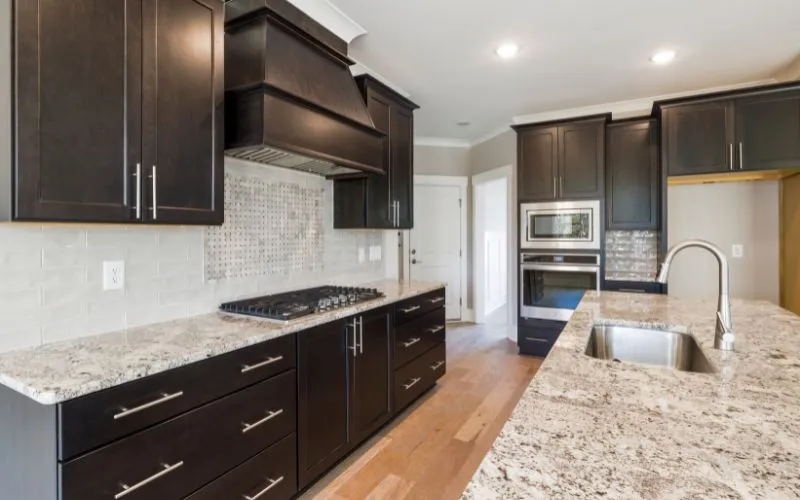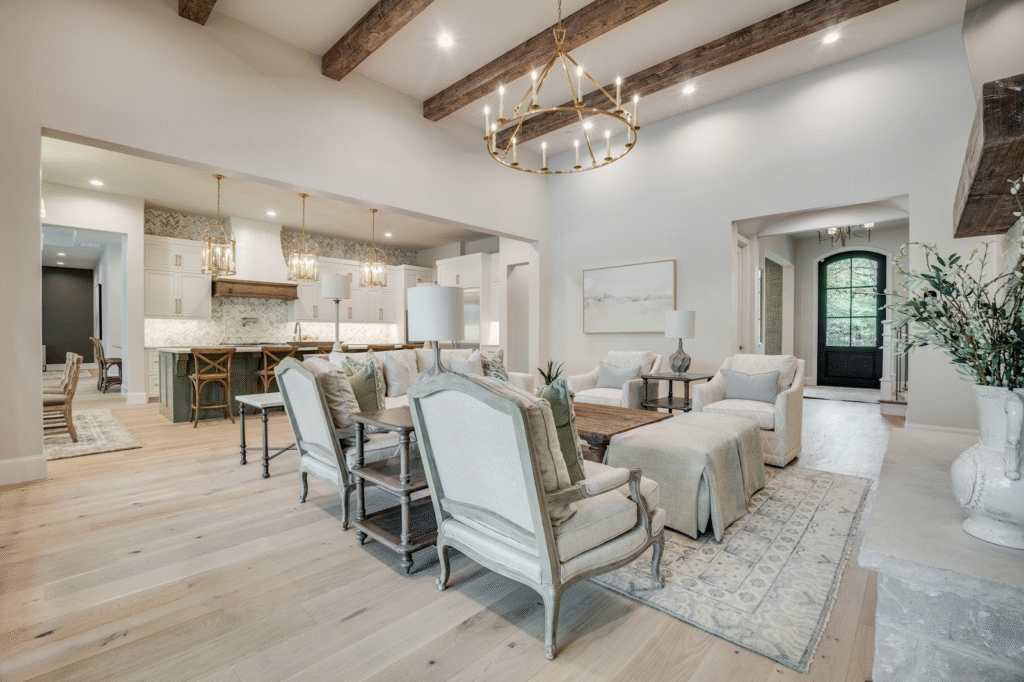
When it comes to choosing the perfect countertop material for your kitchen or bathroom, two of the most popular options are Corian and quartz. Both offer durability, aesthetic appeal, and versatility, but there are significant differences between the two. Understanding these differences is essential for making an informed decision that suits your home’s needs, style, and budget. This article explores the qualities of both Corian vs quartz countertops to help you determine which is the right choice for your space.
What is Corian?
Corian is a brand of solid surface countertops that is manufactured by DuPont. It is made from a blend of natural minerals and acrylic resin, creating a non-porous surface. One of the key benefits of Corian is its ability to be seamlessly joined, which means there are no visible seams in larger countertops. This characteristic makes it a highly sought-after option for homeowners who value smooth, continuous surfaces.
Corian countertops come in a wide variety of colors and patterns, offering design flexibility for any room. The material is also highly customizable, as it can be shaped into unique forms, curves, and designs that are not possible with other materials. Corian’s non-porous nature means it does not absorb liquids, reducing the risk of staining and making it easy to clean. However, while it is resistant to some stains, it is still susceptible to scratches and dents, which may require periodic maintenance to keep it looking pristine.
Corian countertops also have the benefit of being renewable. If a scratch or chip occurs, it can often be repaired easily by a professional who can buff out the damage or replace the affected section. This makes Corian a great choice for homeowners who want a countertop material that can be easily maintained and restored.
The Benefits of Quartz Countertops
Quartz countertops, on the other hand, are an engineered stone made from a combination of natural quartz crystals, resins, and pigments. Unlike Corian, quartz is not a solid surface material, but rather a composite material that closely mimics the appearance and texture of natural stone. Quartz countertops are known for their exceptional durability, resistance to scratches, stains, and heat, making them a popular choice for high-traffic areas like kitchens.
One of the standout features of quartz countertops is their low-maintenance nature. Because quartz is non-porous, it does not require sealing, unlike natural stone options such as granite or marble. This makes quartz an appealing choice for homeowners who want a countertop material that is both aesthetically pleasing and easy to care for. In terms of strength, quartz is one of the most durable materials available, able to withstand heavy use and daily wear without losing its luster.
Quartz countertops come in a wide array of colors, patterns, and finishes, many of which mimic the look of marble or granite. Whether you prefer a clean, modern look or a more rustic design, quartz offers a wide range of options to suit your style. Additionally, quartz countertops do not require the same level of maintenance as natural stone, as they are resistant to staining and do not need to be resealed over time.
Durability: Corian vs Quartz Countertops
When comparing durability, quartz countertops generally have the edge over Corian. Quartz is incredibly tough and resistant to scratches, chips, and stains, making it ideal for high-use areas like kitchens. The material can handle heavy pots, pans, and utensils without showing significant wear. Quartz is also heat resistant to a certain degree, although it is still advisable to use trivets or hot pads to protect the surface from extreme temperatures.
Corian countertops, while durable, are more prone to scratching and denting than quartz. While these imperfections can often be repaired, they can be a concern for those who want a countertop that maintains its pristine appearance over time. Corian is also susceptible to damage from heat, and placing hot pans directly on the surface can cause discoloration or even melting. However, because of Corian’s ability to be renewed through polishing and repairs, it can still be a suitable choice for those willing to invest in maintenance.
In terms of long-term durability, quartz tends to outperform Corian due to its superior scratch, stain, and heat resistance. For homeowners looking for a countertop that can withstand daily wear and tear with minimal effort, quartz is the more practical option.
Maintenance and Care: Corian vs Quartz Countertops
When it comes to maintenance, both Corian and quartz are relatively easy to care for compared to other materials like granite or marble. However, there are a few key differences to consider.
Corian countertops require a bit more attention when it comes to maintaining their appearance. While Corian is non-porous and does not require sealing, it is still prone to scratching and denting. These imperfections can often be repaired by professionals, but homeowners may need to be more cautious when using sharp objects on the surface. Cleaning Corian is relatively simple; it only requires mild soap and water to remove dirt and grime. However, stains from certain substances, such as wine or coffee, may linger if not cleaned promptly.
Quartz countertops, by contrast, are incredibly low-maintenance. Their non-porous surface means that they are resistant to stains, and they do not require sealing or polishing. Cleaning quartz is as simple as wiping it down with a damp cloth and mild detergent. Unlike Corian, quartz is less likely to scratch or dent, and it can handle spills from common household items like oils, coffee, or wine without being damaged. Additionally, quartz countertops are more resistant to heat, which reduces the likelihood of permanent damage from hot pots or pans.
Overall, quartz countertops are easier to maintain in the long run. Their durability and resistance to stains, scratches, and heat make them a hassle-free choice for homeowners looking for a countertop material that will last without requiring constant upkeep.
Aesthetic Appeal: Corian vs Quartz Countertops
Both Corian and quartz offer a wide range of aesthetic possibilities, but they differ in their appearance and texture. Corian countertops tend to have a smooth, seamless look that is ideal for modern, minimalist designs. The material’s ability to be molded into unique shapes allows for creative and custom designs that can elevate the overall style of a kitchen or bathroom. However, because Corian is an engineered material, it lacks the natural depth and veining found in stones like granite or marble.
Quartz countertops, on the other hand, often mimic the look of natural stone and are available in a variety of patterns and colors. With advanced technology, quartz manufacturers can produce designs that closely resemble marble, granite, or even concrete. For homeowners who want the look of natural stone without the maintenance, quartz provides an appealing alternative. The depth and texture of quartz countertops add richness and dimension to a space, making them a versatile option for a wide range of interior designs.
When it comes to aesthetic appeal, the choice between Corian vs quartz countertops largely depends on personal preference. Those who value a seamless, contemporary look may lean toward Corian, while those who want the appearance of natural stone might prefer the sophisticated look of quartz.






